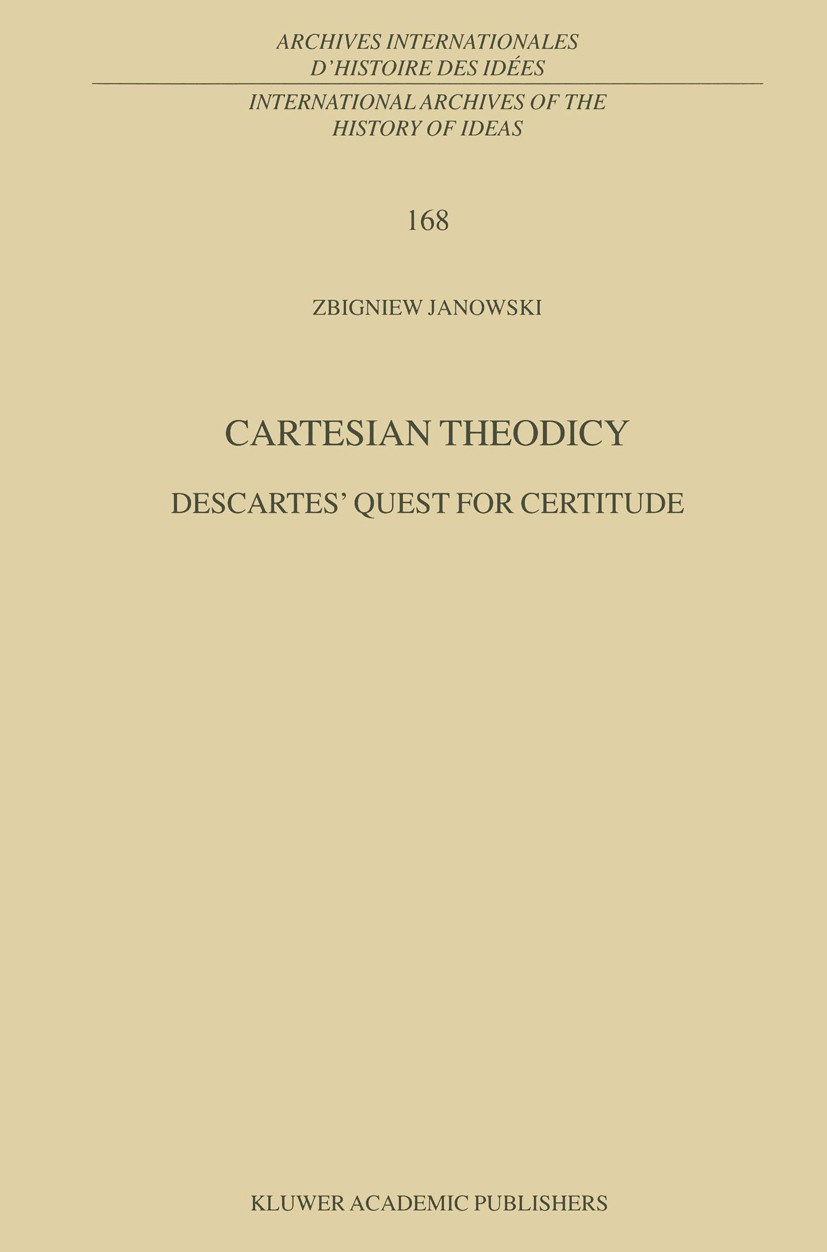| 书目名称 | Cartesian Theodicy | | 副标题 | Descartes’ Quest for | | 编辑 | Zbigniew Janowski | | 视频video | http://file.papertrans.cn/223/222195/222195.mp4 | | 丛书名称 | International Archives of the History of Ideas‘ Archives internationales d‘histoire des idées | | 图书封面 |  | | 描述 | Almost all interpreters of Cartesian philosophy have hithertofocused on the epistemological aspect of Descartes‘ thought. In his.Cartesian Theodicy., Janowski demonstrates that Descartes‘epistemological problems are merely rearticulations of theologicalquestions. For example, Descartes‘ attempt to define the role of Godin man‘s cognitive fallibility is a reiteration of an old argumentthat points out the incongruity between the existence of God and evil,and his pivotal question `whence error?‘ is shown here to be arephrasing of the question `whence evil?‘ The answer Descartes givesin the .Meditations. is actually a reformulation of the answerfound in St. Augustine‘s .De Libero Arbitrio. and the.Confessions.. The influence of St. Augustine on Descartes canalso be detected in the doctrine of eternal truths which, within thecontext of the 17th-century debates over the question of the nature ofdivine freedom, caused Descartes to ally himself with the AugustinianOratorians against the Jesuits. Both in his .Cartesian Theodicy.as well as his .Index Augustino-Cartesian, Textes et..Commentaire. Janowski shows that the entire Cartesian metaphysicscan - and should - be read within the context | | 出版日期 | Book 2000 | | 关键词 | René Descartes; epistemological problem; freedom; knowledge; metaphysics; truth | | 版次 | 1 | | doi | https://doi.org/10.1007/978-94-010-9144-2 | | isbn_softcover | 978-1-4020-0257-1 | | isbn_ebook | 978-94-010-9144-2Series ISSN 0066-6610 Series E-ISSN 2215-0307 | | issn_series | 0066-6610 | | copyright | Kluwer Academic Publishers 2000 |
The information of publication is updating

|
|
 |Archiver|手机版|小黑屋|
派博传思国际
( 京公网安备110108008328)
GMT+8, 2026-1-26 12:12
|Archiver|手机版|小黑屋|
派博传思国际
( 京公网安备110108008328)
GMT+8, 2026-1-26 12:12


